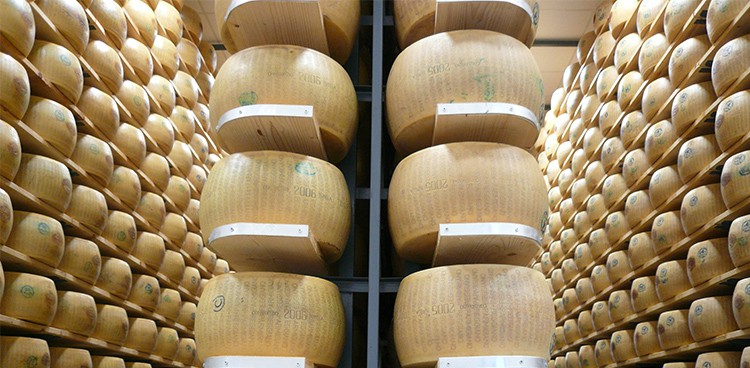
Cheese criminals. No, not a friend who takes your last slab of cheddar when you go to the bathroom. I’m talking about full-fledged, meticulously planning wheel-robbers. Italian authorities recently arrested 11 cheese burglars after they rolled off with $875,000 (€785,000) worth of Parmigiano Reggiano cheese.
Vice’s Munchies reports the bandits searched around central and northern Italy for a suitable warehouse or factory to wheel out of. And they came prepared. Police found all types of cheese-thieving tools on them, including weapons, radios, and gadgets to trip alarm systems.
The cheese gang stole 2,039 wheels of Parm over about two years, according to Il Sole 24. If you think this sounds crazy, these thieves are not alone. Cheese is the most commonly stolen food in the world—in the world!—according to the Center for Retail Research. Do a quick search and you will find everything from a gas station nacho cheese bandit in Iowa to a couple who stole 57 blocks from Georgia Walmarts.
Though cheese doesn’t immediately come to mind as something of great value like gold, diamonds, or college textbooks, a good wheel of parm can break the bank. In fact, Credem—an Italian bank chain—accepts Parmigiano Reggiano as collateral against farmer’s loans. A proper wheel of Parmigiano Reggiano takes around two years to age, which can be pricy when you consider things like staff salary and temperature maintenance. Farmers producing this delicacy need loans to support them in the time between aging and selling the cheese.
By offering up the 100-pound cheese wheels to the bank, farmers get the funds to get them through and the banks have assurance that, if a farmer can’t pay back the loan, the bank sells the aged wheel at market price. Since the cheesemakers are given funds to represent 80 percent of the wheel’s expected value (with interest), if the bank needs to sell the wheel, they are making at least 20 percent profit.
And this isn’t the Parm you usually see in the States: true Parmigiano-Reggiano—a hard cow’s milk cheese—is a legally protected name in Italy and Europe. Cheese only qualifies if it is made within certain provinces of Italy and meets strict production criteria.
So will all these wheels make it into the stomachs of hungry, cultured Italians? We hope so—but we do know that someone’s gonna go hungry on the Russian black market…



